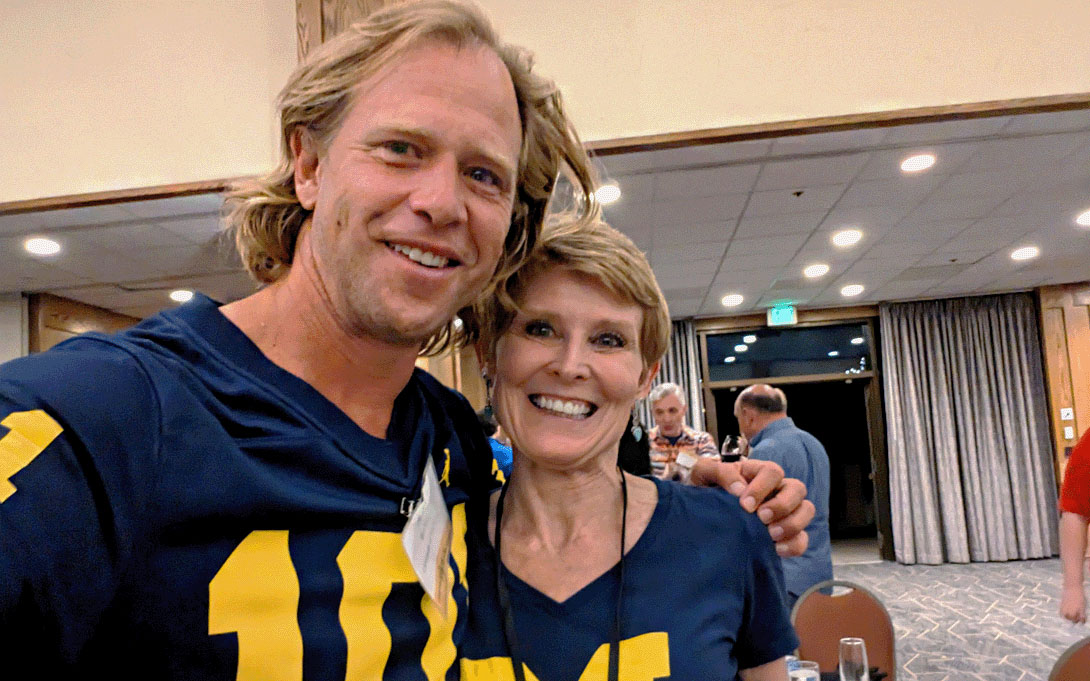
With a generous commitment from U-M alumna and influential macro-economist Diane Swonk (BA ‘84, MAE ‘85), the Gerald R. Ford School of Public Policy has established the Diane Swonk Research Fellowship Fund to support doctoral students in the school’s joint Public Policy and Economics program and in the University of Michigan Economics Department. In addition to financial assistance, the funds help establish critical research and mentoring collaborations between students and faculty.
“We are incredibly grateful for Diane’s gift, which will provide our students, especially those who come to us on non-traditional paths, with additional supports that will allow them to focus on their research,” said Kathryn Dominguez, professor of public policy and economics and director of the Ford School's doctoral programs.
Swonk understands how it feels to be one of the few female leaders in a male dominated field, and to sacrifice her maternity leave to keep her career on track. She thought she was blazing an easier trail for others in the field. But in 2018, Berkeley undergraduate Alice Wu published her senior thesis in the American Economic Association papers and proceedings, exposing gendered language used on a popular online economics job market site. Since then, studies published in NBER have documented sexist and racist language and barriers in the economics field. Swonk knew she had to do more.
“I was devastated to realize that my own profession is failing,” Swonk said. “Systematically, we have discarded a lot of talent. It’s not optimal. We need to change the culture.”
Swonk is on a mission to move the needle. “I’ve learned through my work with the Posse Foundation that human capital is malleable,” she said. “The talent is there, and we need to provide a little more support to those who haven’t had the same access to information or resources. It’s really important to me to help both economists entering the field and also help more experienced economists gain tenure.”
As a labor economist, Swonk knows that diversity makes for better decision making. “When a decision making group more accurately reflects society, they take more time looking at all the facts and discussing different scenarios. There is magic that happens when you have someone different in the room. It’s a win for everyone.”
Diane Swonk is chief economist and managing director at KPMG LLP and advises the Federal Reserve Board and its regional banks. She has periodically advised the Congressional Budget Office (CBO) and the Council of Economic Advisers (CEA) for the White House on a nonpartisan basis. She has been named a Fellow of the National Association for Business Economics (NABE) for her outstanding contributions to the field of business economics and continues to dedicate much of her time to improving the quality and timeliness of economic data, which she views as a critical aspect of policy making. She was recently named among the 100 most influential economists in the world. The Association for Corporate Growth Chicago gave her a lifetime achievement award in 2019.
Swonk earned her bachelor's and master's degrees in economics with top honors from the University of Michigan. She earned a master's degree in finance and strategic planning with top honors from the University of Chicago Booth School of Business.